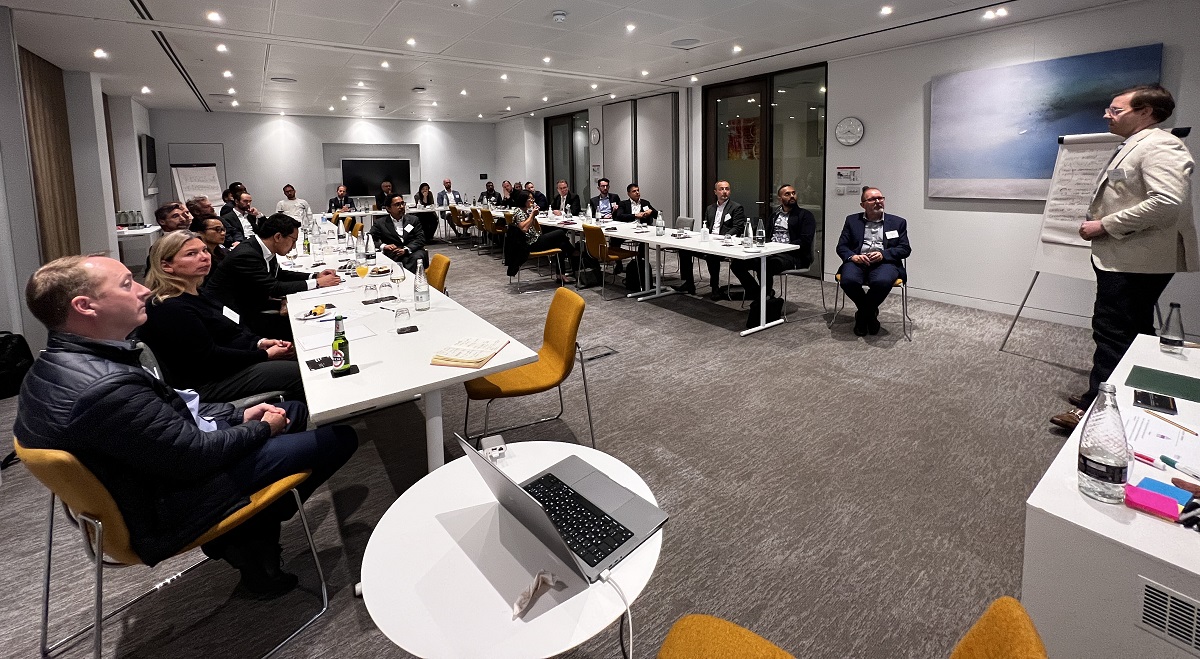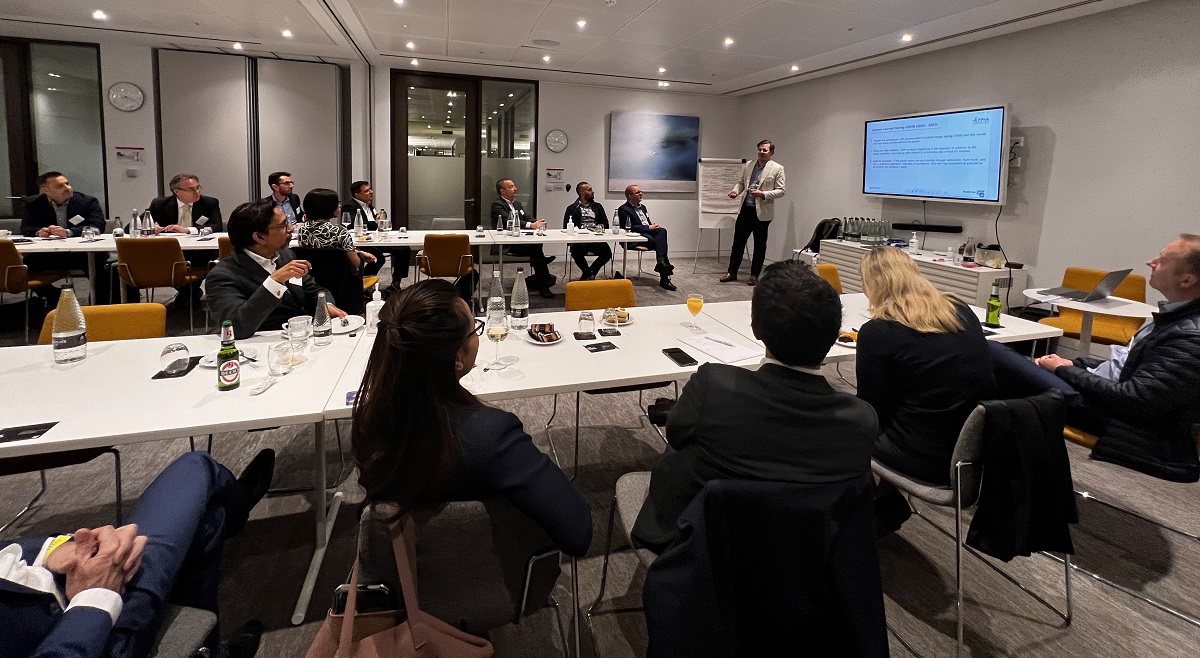In this series of blogs, I will be looking at a number of areas that FP&A...
After an absence of almost two years, I was looking forward to joining the London FP&A Board meeting, where a group of senior finance professionals met in person, many experiencing their first face-to-face industry event since the initial lockdown in the UK back in March 2020. For a few, it was a chance to catch up with familiar faces, and for others to build a new network, but for all, there was natural ease when taking the chance to meet people in person, without the need for web conferencing or any other technology solutions to facilitate the conversation, and certainly no requirement for a goat or other farmyard animal to provide mental stimulus and comic relief to the monotony of long online calls. It was clear, we had all missed the chance to network!
As usual, the FP&A Trends team delivered an exceptional event in a super central-London location, and after enjoying customary “get to know you” canapés, they invited us to get straight down to business. I for one was eager to hear what this group of Finance execs would report on their experiences during the pandemic, and where they would be taking their FP&A practices as a result. And would their feedback in any way resemble that which I had reported on just over one year ago, mid-pandemic, when agility, responsiveness and resilience were the watchwords at work?
I wasn’t disappointed!
Key Learnings from Pandemic Experiences
Reporting on experiences from the pandemic and how this had impacted FP&A people, processes and technologies, attendees responded with a few key learnings, including:
- Speed was essential in terms of having access to FP&A analysis on which to base time-sensitive decisions, as well the ability to make and execute revisions to rapidly changing plans
- Collaboration and Business Partnering was increasingly important for effective decisions across the organisation
- Agility, adaptability and responsiveness were all required attributes in FP&A processes that needed to deal with rapid changes and the need to react quickly
- Teams, comprising people having the right capabilities, being adaptable and having a change mindset were vital elements when dealing with such difficult conditions – both in terms of business conditions as well as personal experiences

Figure 1: The FP&A Board Meeting in London (the 26th of April, 2022)
Attendees of the group shared many experiences, some of which had influenced dramatic changes in business operations and FP&A approaches, with Cash Flow Management cited as a critical issue for many, while rapidly out of date budgets and plans were experienced by others.
Among the group however, there appeared a genuine confidence and trust that the analysis gained through effective FP&A had and continued to be of significant benefit to their organisations, and that efforts to improve and refine FP&A processes would continue. Though there was also a sentiment that the “right kind” of analysis providing information that was fit for purpose was needed, as too much data and information could simply be overwhelming for users.
Considering a Future Focus for FP&A

Figure 2: The London FP&A Board Members (April 2022)
In examining possible future improvements to FP&A, attendees were asked to consider the relevance of Scenario Planning in supporting business plans and also the challenges and benefits in adopting an xP&A approach in their business. The message was clear:
- Scenario Planning is key, but it needs to be predicated on the right business drivers, run at the right frequency, and address the right business questions, as too many scenarios would be distracting and of little use.
- xP&A, was seen by many as a future state for FP&A, rather than a current reality for many, but one which would offer significant benefit in terms of cross-functional collaboration, communication and synchronization between different parts of organisations for the aim of achieving common strategic goals. Questions arose concerning the challenges of data management, strategic communications and alignment, as well as the involvement of and cultural impact on people and teams. For most xP&A was an ongoing journey, with organisations at different stages on that journey.
People and Process Really Matter
A couple of things appeared to resonate with the group:
- A refocus on FP&A. It was clear that while the pandemic provided a stormy ride (to put it mildly) for many attendee organisations’, this hadn’t lessened the interest, enthusiasm and reliance on FP&A Analysis in their businesses. In fact, it seemed that the experiences of the last two years had merely served to reinforce the need for FP&A, but to make processes quicker, more agile, more reliable and more relevant.
- A renewed focus on People. It was also clear that People and Teams had played a key role in keeping businesses operational through their adaptability and sheer force of will in the face of rapidly changing circumstances, which impressed upon attendees the importance in investing in the right quality of people and skills for future success.
Of course, what’s missing from this focus on Process and People is the much-needed Technology to tie things together. Thankfully I know some people who can help with this!

Figure 3: The Warm Atmosphere after the London FP&A Board Meeting
My thanks to all the FP&A Board attendees and to FP&A Trends for a super event. I’m looking forward to the next one!
We would like to thank our global sponsors SAP, IWG and Robert Half for their great support with this FP&A Board.
Subscribe to
FP&A Trends Digest

We will regularly update you on the latest trends and developments in FP&A. Take the opportunity to have articles written by finance thought leaders delivered directly to your inbox; watch compelling webinars; connect with like-minded professionals; and become a part of our global community.





